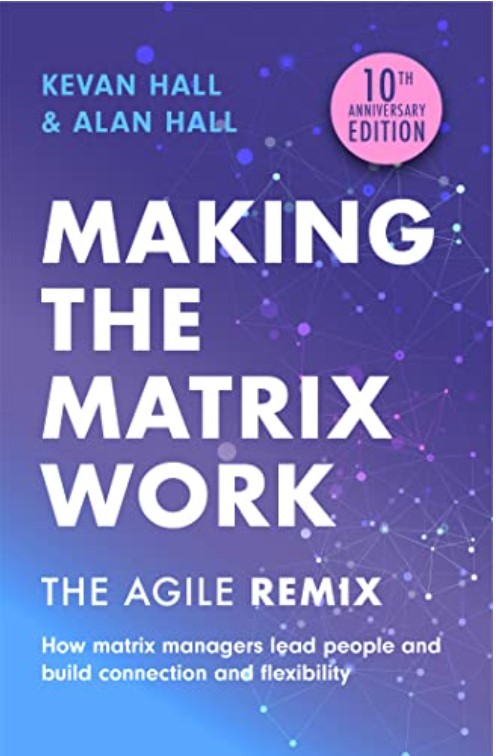30 years of matrix management – what’s new
We’ve been working with clients around the world on developing matrix management skills for the last 30 years – from the world’s biggest and most complex commercial organisations through to national and international institutions and companies of less than 100 people.
All of them need to operate in a more integrated and efficient way to deliver to their customers, run internal projects and initiatives, share resources and break the silos to improve horizontal collaboration.
If you’re interested in the way this is had an impact on ways of working and skills then please join our free matrix management webinar here.
People new to the matrix often still think it is a new “fad” but it’s been around since it was developed for complex project organisations in the 1970s.
It is now the organisation structure of choice for the world’s leading companies. Over 90% or Fortune top 50 and FTSE 50 companies operate some kind of matrix
We also work with companies who have moved to an agile organisation with tribes, chapters guilds and squads (again multidimensional organisation where each entity interrelates within a dynamic matrix), we work with networked organisations (a matrix without formal reporting lines), and organisations who prefer not to use the word matrix.
If your organization needs to take into account multiple entities like business units, regions, technology groups, customer segments, functions or multiple teamwork, then you are operating in a matrix way, irrespective of your formal structure.
After the financial crash in 2008/9 there was a huge wave of matrix implementations aimed at delivering synergies and cost savings. These almost universally lead to an increase in centralisation, that was their (often unstated) intent. This often (and unsurprisingly) led to a reduction in local flexibility.
in the last ten years the intent of the matrix changed, with organisations being keen to preserve agility as well as pursue synergies (hence the second edition of our book Making the Matrix Work being subtitled the Agile Remix and focusing on how to balance integration and flexibility).
in the last five years, digital transformation has started to make a big impact on the need to operate horizontally across organisations. Digital does not care about your internal silos and is naturally lateral – if you can’t work across the silos then you can’t implement digital transformation. A successful matrix is a precondition for digital success.
After the latest round of layoffs following COVID and its aftermath we are seeing a big increase in “One Company” campaigns, driven by a desire to get close to the customer and to share costs and resources more effectively.
Irrespective of what you call your organisational transformation; matrix, digital, agile, one company etc.. There seem to be some common directions in the evolution of work.
We will address these in more detail with examples from matrix transformations we’ve run with many organisations in our free New Developments in Matrix Management webinar.
We look forward to seeing you there.
Or you can see more about our matrix management training here.

Explore our training programs to see how we can help.
Agile & Digital Training Matrix Management Training People and purpose Training Virtual Teams TrainingEducate yourself further with a few more or our online insights:
30 years of experience learning with a range of world class clients
We work with a wide range of clients from global multinationals to recent start-ups. Our audiences span all levels, from CEOs to operational teams around the world. Our tools and programs have been developed for diverse and demanding audiences.

Tailored training or off the shelf modules for your people development needs
We are deep content experts in remote, virtual and hybrid working, matrix management and agile & digital leadership. We are highly flexible in how we deliver our content and ideas. We can tailor content closely to your specific needs or deliver off the shelf bite sized modules based on our existing IP and 30 years of training experience.
For more about how we deliver our keynotes, workshops, live web seminars and online learning.